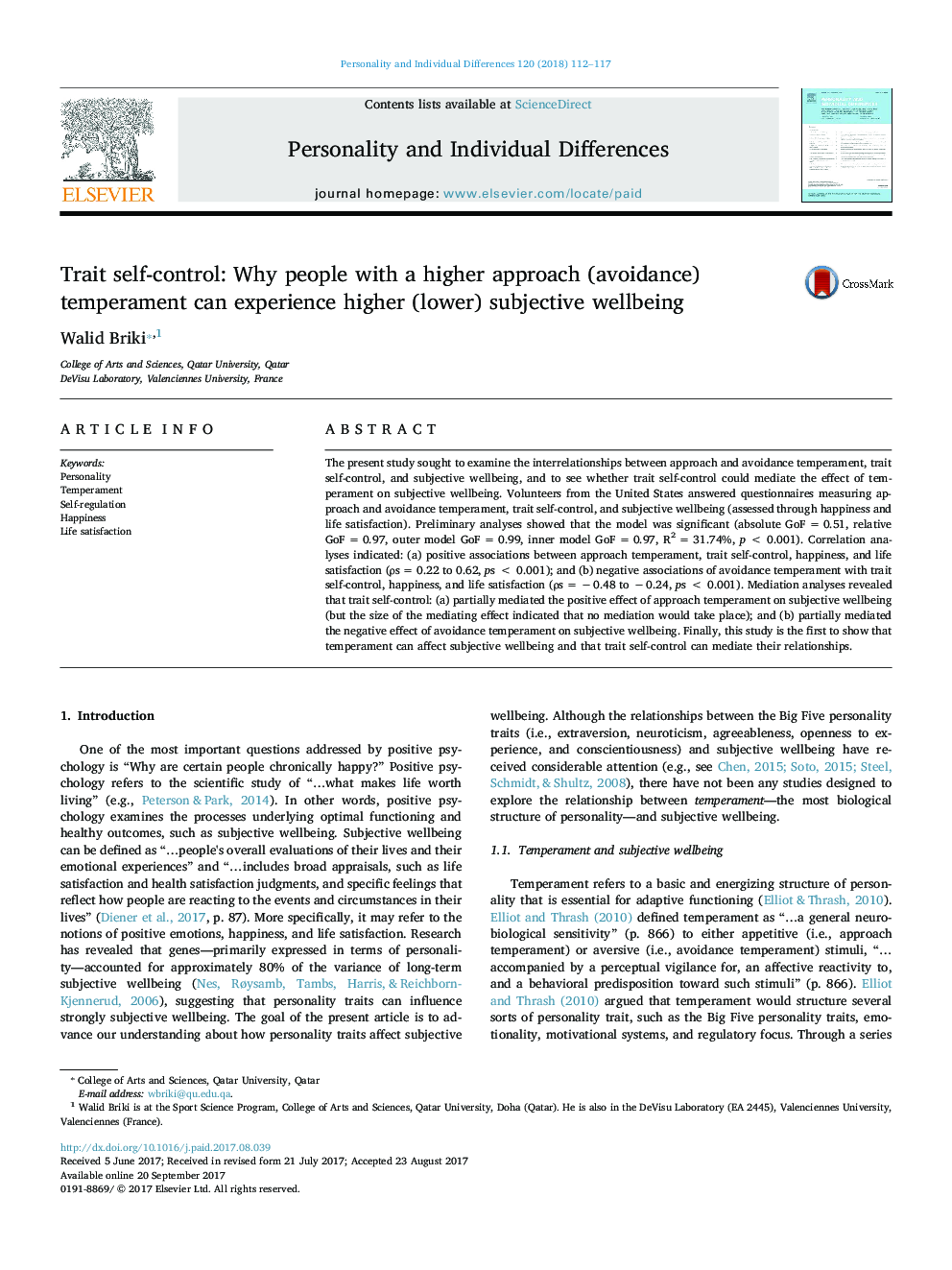| کد مقاله | کد نشریه | سال انتشار | مقاله انگلیسی | نسخه تمام متن |
|---|---|---|---|---|
| 5035524 | 1471998 | 2018 | 6 صفحه PDF | دانلود رایگان |
- Exploration of the relationships between temperament and subjective wellbeing (SWB)
- Exploration of the mediating effects of trait self-control
- Approach temperament positively predicted trait self-control and SWB
- Avoidance temperament negatively predicted trait self-control and SWB
- Trait self-control partially mediated the effects of temperament on SWB
The present study sought to examine the interrelationships between approach and avoidance temperament, trait self-control, and subjective wellbeing, and to see whether trait self-control could mediate the effect of temperament on subjective wellbeing. Volunteers from the United States answered questionnaires measuring approach and avoidance temperament, trait self-control, and subjective wellbeing (assessed through happiness and life satisfaction). Preliminary analyses showed that the model was significant (absolute GoF = 0.51, relative GoF = 0.97, outer model GoF = 0.99, inner model GoF = 0.97, R2 = 31.74%, p < 0.001). Correlation analyses indicated: (a) positive associations between approach temperament, trait self-control, happiness, and life satisfaction (Ïs = 0.22 to 0.62, ps < 0.001); and (b) negative associations of avoidance temperament with trait self-control, happiness, and life satisfaction (Ïs = â 0.48 to â 0.24, ps < 0.001). Mediation analyses revealed that trait self-control: (a) partially mediated the positive effect of approach temperament on subjective wellbeing (but the size of the mediating effect indicated that no mediation would take place); and (b) partially mediated the negative effect of avoidance temperament on subjective wellbeing. Finally, this study is the first to show that temperament can affect subjective wellbeing and that trait self-control can mediate their relationships.
Journal: Personality and Individual Differences - Volume 120, 1 January 2018, Pages 112-117
